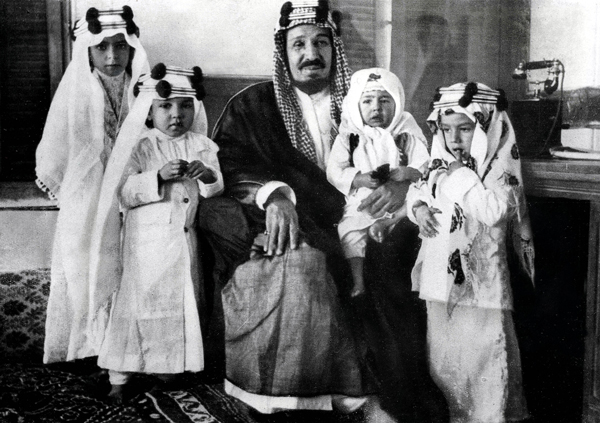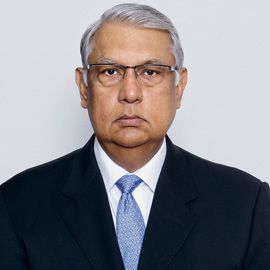House of Saud on a slippery slope? A family coup might be at hand

Dimming aura
- Saudi Arabia is fast losing its authoritative position in the Middle East
- Mass executions, growing rivalry with Iran, bombing Yemen and the dip in oil prices are all factors
Dramatis personae
- King Salman, who took the throne last year, is said to be afflicted by progressive dementia
- His favourite son, Muhammad, the defence minister, is running amok
More in the story
- Can a family coup restore the House of Saud to its former position?
- Who among founder Abdulaziz\'s descendants could take over the throne?
The House of Al-Saud has ruled the Kingdom of Saudi Arabia as a personal fiefdom for over a century. But over the last one year, the durability of the House has come under strain.
The Kingdom's reputation as an ultra-conservative Islamic country has suffered further with the recent mass beheadings provoking outrage worldwide among Shia communities.
Also read - 47 executions, 1 day: Saudi excesses trigger a storm in the region
In India, the Saudi state's image, which was anyway nothing to write home about, has fallen even further. One of its diplomats was accused of serial rape, while a Saudi employer of an Indian woman cut off her arm following a dispute.
Slide in fortunes

August 1945: King Abdul Aziz Ibn Saud's 5 sons, among them Amir Faisal (later King Faisal) and Amir Fahd (later King Fahd) - board a plane in Hampshire. Photo: William Vanderson/Fox Photos/Getty Images
The slide in the Kingdom's geopolitical fortunes began with the demise of King Abdullah in January last year. King Abdullah was the first Saudi monarch to be the Chief Guest at India's Republic Day celebrations in 2006, and the first in 51 years to visit India.
His successor, King Salman, a half-brother, was, for decades, the Governor of Riyadh. The new team that he has put together at the pinnacle of the Saudi ruling structure includes his favourite son, Muhammad bin Salman, who at the tender age of 30, has vaulted into the powerful position of the deputy crown prince, second deputy prime minister and the youngest minister of defence in the world.
The first major event in his tenure as defence minister was Operation Decisive Storm, part of the Saudi Arabia-led intervention in Yemen to counter the Houthis rebels, who have driven the Saudi-supported Yemeni government into exile.
The mass execution of 47 convicts, including the widely respected Iranian-educated Saudi Shia cleric Nimr Al-Nimr, has provoked Iran and the Shia community worldwide, leading to a new round of recriminations and rising tensions in the region.
King Salman's regime appears desperate. Its paranoia stems from its growing rivalry with Iran
The regime of King Salman appears to be desperate. Its paranoia stems from its growing regional rivalry with Iran. The Saudi ruling family has never looked so vulnerable in the face of this growing regional rivalry and the ongoing war in Yemen and the civil war in Syria.
Historically low oil prices have caused Saudi oil revenues to tumble. This is why opening so many fronts, which suck out money from the Saudi treasury, seems an odd policy choice.
Also read - Al-Nimr sought democracy; will Saudi Arabia give him death today?
The International Monetary Fund estimates that at the current rate of depletion of the Saudi reserves, the Kingdom could run into financial difficulties in 5-6 years.
Can the Saudi monarchy and the Al-Saud family sustain its hold on power? That's a question that is increasingly agitating many observers, who are blaming young Muhammad bin Salman for the aggressive muscle-flexing, quite unusual for the Saudis.
The art of surviving trouble

1935: King Ibn Saud (1880-1953) with his four grandchildren. Photo: Popperfoto/Getty Images
The ruling family is principally composed of the descendants of Abdulaziz ibn Saud, the founder of the modern Saudi state, who traces his origins to 18th century tribal chief Muhammad bin Saud.
After much internecine conflict, Abdulaziz managed to consolidate his sway over much of the Arabian Peninsula. In 1932, Abdulaziz declared himself King of Saudi Arabia, and like his predecessors, aligned himself with Imperial Britain after defeat of the Ottomans in the First World War.
Abdulaziz consolidated his Kingdom by marrying daughters from various important tribes and clans, siring a large family. His sons continued this practice and soon they adopted royal titles and became a 'Royal Family'. The Saudi family agreement with the ultra-conservative Wahhabi clergy was part of the consolidation effort. Acceptance of the political dominance of the family was the quid pro quo for the clergy being permitted to establish its judicial dominance and application of Sharia laws.
After the discovery of oil in 1937 by American oil companies in the eastern province of Dammam, the fate of this obscure family changed dramatically.
With the onset of the Second World War, the USA's burgeoning demand for oil made Saudi Arabia a strategic partner and ally, since the famous meeting between King Abdulaziz and American President Franklin D Roosevelt on board the USS Quincy, an American warship, on 14 February 1945. The rest is history.
Oil revenues have shrunk by 23% in 2015, as per figures put out by the Saudi ministry of finance
Saudi Arabia became an ally and protectorate of the USA, providing the American economy a vast and virtually inexhaustible supply of energy. This American-Saudi pact also extended to the containment of the Soviet Union, based on the visceral Saudi dislike for 'Godless Communism'.
The Saudi royal family has faced numerous challenges to its power, staving off and surviving internal family struggles, a Wahhabi Ikhwan (Brotherhood) uprising in 1979 and Al-Qaida inspired terrorist attacks.
The recent mass executions triggered speculation that the Saudi regime has been spooked by growing internal anger over economic problems and the failure of regional policies towards Iraq, Yemen, Syria and Iran. The Saudi regime has survived all these years, not by the consent of the people, but by sharing a portion of the enormous wealth generated by oil revenues.
Oil adds to troubles
This year's budget has cut back subsidies and other freebies enjoyed by the people, and the unhappiness index is on the rise. Oil revenues have shrunk by 23% in 2015, as per the figures put out by the Saudi ministry of finance.
The worst defeat for the regime's foreign policy was the failure to block the Iran nuclear deal, despite intense lobbying by the Saudis in the USA.
The mass executions served to divert attention and deflect domestic anger, and rally Sunni support by playing the sectarian Shia card against Iran. The anxiety of the ruling regime has led it to announce a 34-nation Sunni bloc to fight terrorism, and repeated appeals to Pakistan for help.
On both counts the Saudis have not succeeded. Clearly, the regime's stature has fallen.
Also read - Shiite-Sunni divide: Understanding the Iran-Saudi Arabia conflict
Change of guard?
A report by the German Intelligence Agency, BND, leaked in December last year, created a sensation. It blamed Muhammad bin Salman as a political gambler bent on destabilising the region by proxy wars, at a time when King Salman is increasingly afflicted by progressive dementia.
The net result of such erratic policies has led to a heightened probability of a family coup. Rumours are circulating that King Salman may be replaced by another younger brother, Ahmed bin Abdulaziz, the youngest of the seven brothers from Hassa bint Ahmed Al Sudairy, one of dynasty founder Abdulaziz's wives.
American-educated Prince Ahmed enjoys a clean reputation, and is regarded as open-minded and moderate.
There are 13 surviving sons of Abdulaziz in a family which has seen succession passing from brother to brother since the death of the founder.
King Salman may be replaced by younger half-brother, Ahmed bin Abdulaziz, who's seen as a moderate
This line of succession may now be contested by prominent grandsons of Abdulaziz, who are better educated and waiting on the sidelines for a long time. Crown Prince and Interior Minister Muhammad bin Nayef, reportedly a favourite of Washington, is among them.
It is entirely possible that the Saudi ruling family will ride out this crisis by a family-led consensus for change, because if that does not happen, then internal dissent and flawed external policies may spell instability.
The meltdown of the Saudi regime will reverberate throughout the region and cause considerable chaos. No one knows the kind of change that could descend on Saudi Arabia.
Will the USA, with its intimate connections with the Saudi ruling family, sit idly by? That's a moot point. As economic sanctions are lifted on Iran, the Saudi regime has to adjust to the reality of changing regional geopolitics. The alternative is far worse even to contemplate.
More in Catch - What happened at the Saudi diplomat's house: shocking first-person account
Death by Dissent: al-Nimr isn't alone - Saudi set to execute another teen
Before celebrating oil @ $30 don't forget to check the ramifications
First published: 19 January 2016, 8:38 IST






![BJP's Kapil Mishra recreates Shankar Mahadevan’s ‘Breathless’ song to highlight Delhi pollution [WATCH] BJP's Kapil Mishra recreates Shankar Mahadevan’s ‘Breathless’ song to highlight Delhi pollution [WATCH]](https://images.catchnews.com/upload/2022/11/03/kapil-mishra_240884_300x172.png)

![Anupam Kher shares pictures of his toned body on 67th birthday [MUST SEE] Anupam Kher shares pictures of his toned body on 67th birthday [MUST SEE]](https://images.catchnews.com/upload/2022/03/07/Anupam_kher_231145_300x172.jpg)





_in_Assams_Dibrugarh_(Photo_257977_1600x1200.jpg)
